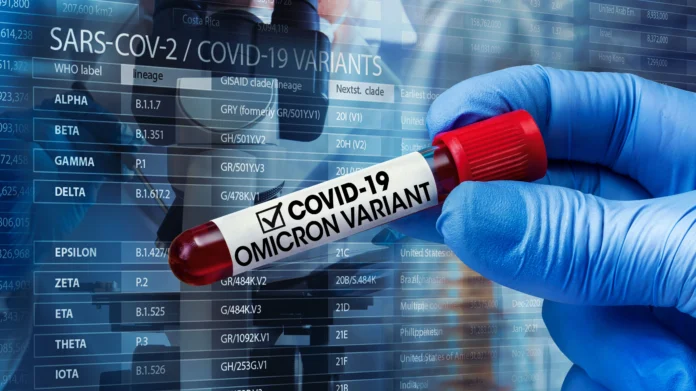Last week, the news of a new “deadly” COVID-19 variant sent shockwaves across the world, causing countries to impose drastic travel bans against South Africa where the variant was originally discovered.
But as the media headlines put everyone on edge, scientists were in the background working quickly to debunk theories about this variant and to provide clear and concise information. In this article, we will explore all that is known about Omicron so far, and just ow alarmed we should be.
Omicron- How bad is it?
Omicron was discovered by researches in South Africa, who first reported their findings to the World Health Organization on November 24, 2021. Two days later, the WHO designated it “the 5th variant of concern” and gave it the name Omicron which is the 15th letter in the Greek Alphabet.
But what caused the global alarm? And why was it initially described as the worst COVID-19 variant to date?
Well for starters, the main cause for concern is that this variant has a highly unusual genetic profile. According to Jeffrey Barrett, the director of the Covid-19 Genomics Initiative at the Wellcome Sanger Institute, the variant is a mixture of 4 earlier mutations: Alpha, Beta, Gamma, and Delta along with other changes that have never been seen before.
Scientists worry that Omicron can possibly bypass any immunity that was gained either from vaccination or previous infection thus causing more hospitalizations and deaths. Furthermore, the complexity of the mutations discovered in the variant have not yet been observed in any other strains, therefore there is a lot of uncertainty surrounding how it works and the extent of damage it can do.
Director General of the WHO- Dr Tedros AdhanomGhebreyesus expressed his gratitude to South Africa for reporting the discovery of Omicron saying that “The emergence of the Omicron variant has understandably captured global attention, at least 23 countries from 5 of 6 WHO regions have now reported cases of Omicron and we expect that number to grow. WHO takes this development very seriously, and so should every country, but it should not surprise us- this is what viruses do.”
What about Transmissibility?
You may be wondering: How soon will Omicron get to Antigua and Barbuda? Although it was first detected in South Africa, a lot is unknown about the variant including where it originated and how fast it spreads. In South Africa, data shows that the variant is spreading rapidly and infections are more prominent in Johannesburg and Pretoria but most cases reported mild symptoms with a few severe. To date, a total of 23 countries reported cases of Omicron.
However, epidemiologists say that Omicron may not be so transmissible in other parts of the world where the population is older and more vaccinated. In a recent update from the WHO, Dr Maria Van Kerkhove, Technical Lead on Covid-19, expressed that although there are suggestions that variant has increased infectivity, it is still too early to determine just how transmissible it is.
She further encouraged that the world should continue to utilize and strengthen all the measures and protocols that we have used for the Delta variant.
Takeaway- What does this mean for Antigua and Barbuda?
When news of Omicron hit, countries imposed their measures in order to protect their citizens and health systems. The Prime Minister of Antigua and Barbuda stated he may have to review previous promises of lifting the state of emergency as a result of the uncertain severity of this variant.
But what can you as an individual do? Well, as Omicron spreads across the world, we will surely learn more about it.
For now, we should all continue to follow all protocols which include social distancing, proper hygiene and sanitization and of course vaccination.







